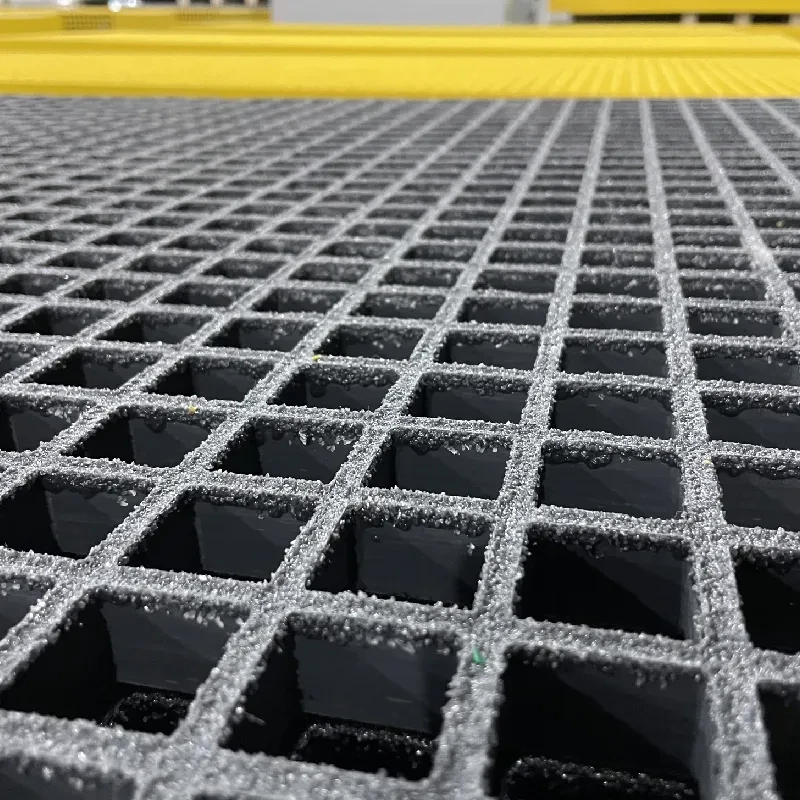loading...
- No. 9, Xingyuan South Street, Dongwaihuan Road, Zaoqiang County, Hengshui, Hebei, China
- admin@zjcomposites.com
- +86 15097380338
- Welcome to visit our website!
Flexible Resin Softener Tank for Efficient Water Treatment Solutions
Understanding FRP Softener Vessels A Comprehensive Overview
In today's industrial landscape, the use of Fiberglass Reinforced Plastic (FRP) softener vessels has become increasingly prevalent. These vessels play a critical role in water treatment processes, particularly in softening hard water, which can otherwise lead to a myriad of issues in both residential and industrial settings. This article will explore the structure, advantages, applications, and maintenance of FRP softener vessels, shedding light on why they are preferred over traditional materials.
What are FRP Softener Vessels?
FRP softener vessels are tanks made from fiberglass reinforced plastic, a composite material that combines a polymer matrix with glass fibers. This combination provides remarkable strength, durability, and resistance to corrosion and chemical attack. They are specifically designed to house water softening agents, such as ion exchange resins, and facilitate the process of removing hardness ions, primarily calcium and magnesium, from water.
The Structure of FRP Softener Vessels
The construction of FRP softener vessels involves a careful layering of materials. Typically, an inner liner of thermoset resin is applied to prevent water ingress and chemical attacks. The fiberglass layer is then added, providing tensile strength and enhancing resistance to impacts. Finally, an outer protective layer often coated with gel coats protects the vessel from external environmental stresses.
The design of these vessels can vary based on application requirements, including size, shape, and pressure ratings. Common configurations include vertical and horizontal tanks, each suited for specific operational needs.
Advantages of FRP Softener Vessels
1. Corrosion Resistance One of the most significant advantages of FRP is its resistance to corrosion. Unlike conventional metal tanks, which can rust and degrade over time due to water exposure and chemical reactions, FRP vessels maintain their integrity even in harsh environments.
2. Lightweight FRP vessels are significantly lighter than metal counterparts, making transportation, installation, and maintenance more convenient and cost-effective.
3. Reduced Maintenance Costs The durability and robustness of FRP lead to lower maintenance requirements. Operators of water treatment facilities appreciate the long lifespan of these vessels, as they do not require frequent replacement or repairs.
frp softener vessel

4. Customizability FRP can be easily molded into various shapes and sizes, allowing manufacturers to customize vessels for specific applications. Whether large scale industrial needs or smaller residential systems, FRP can adapt to fit.
5. Thermal Insulation FRP offers better thermal insulation compared to metals, minimizing heat loss and improving the efficiency of the water softening process.
Applications of FRP Softener Vessels
FRP softener vessels serve a multitude of applications across various industries
- Residential Water Treatment Homeowners use FRP softener vessels to combat hard water, which can cause scale build-up in pipes and appliances, thereby prolonging their life span and efficiency.
- Industrial Applications Many industries, including food and beverage, pharmaceuticals, and power generation, require soft water for processes that specify purity standards. FRP vessels are commonly used in these sectors to meet regulatory requirements.
- Aquaculture In aquaculture, maintaining optimal water conditions is crucial for the health of aquatic life. FRP softener vessels help in providing suitable water quality free from hard minerals.
Maintenance of FRP Softener Vessels
While FRP softener vessels are low maintenance, some routine checks and practices can extend their lifespan. Regular inspections for any signs of surface wear or damage are essential. Cleaning the resin bed periodically and ensuring proper flow rates will help in maintaining optimal performance.
In conclusion, FRP softener vessels represent a significant advancement in water treatment technology. Their unique properties make them an ideal choice for softening hard water across diverse applications. As industries continue to prioritize efficiency and sustainability, FRP softener vessels will undoubtedly lead the way, ensuring that water quality meets the necessary standards while minimizing environmental impacts. Adopting these advanced technologies paves the path for a more efficient and sustainable future in water treatment.
-
Premium FRP Handrail for All ApplicationsNewsAug.29,2025
-
Low Maintenance FRP Mini Mesh Grating ProductsNewsAug.29,2025
-
Innovative FRP Square Tubes for Modern Industrial SolutionsNewsAug.29,2025
-
FRP Water Storage Tanks Wholesale Solutions for Bulk BuyersNewsAug.29,2025
-
FRP Molded Grating Solutions for Diverse Industrial ApplicationsNewsAug.29,2025
-
Construction Advancements Through FRP Pultruded ProfilesNewsAug.29,2025
-
Why Choose FRP Railings, Guardrails, and Handrail Systems?NewsAug.29,2025
